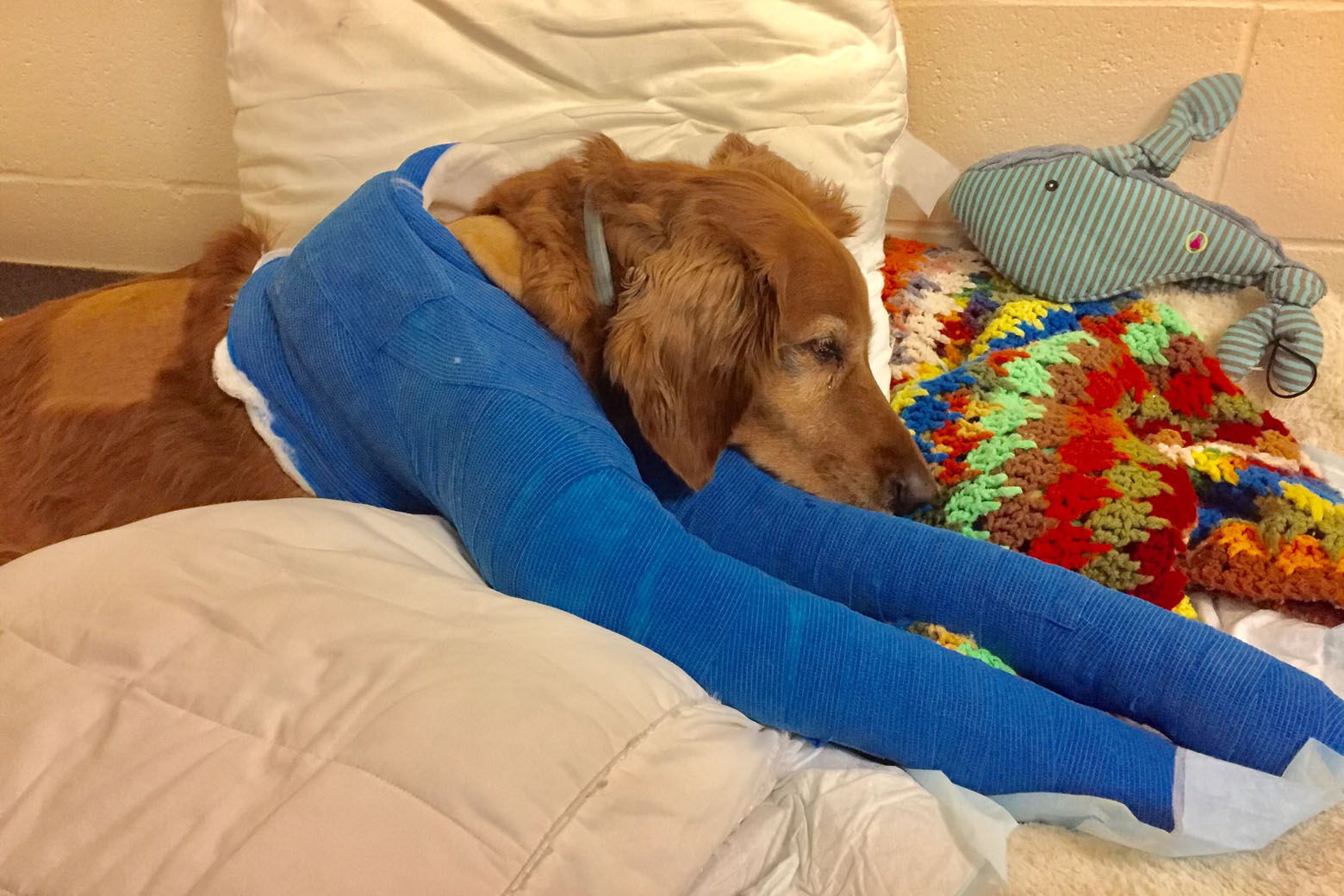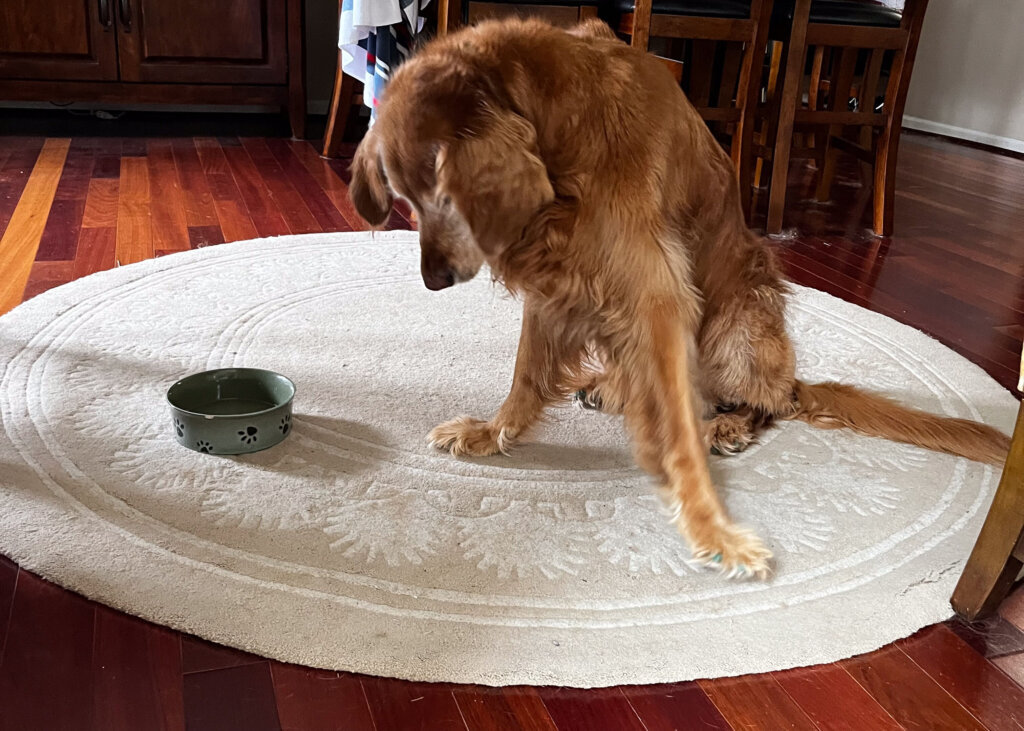This video is no longer available.
A Virginia woman who said her golden retriever’s legs were fractured during treatment by a veterinarian will be able to file a lawsuit for the dog’s medical treatment and $110,000 a year in rehabilitation costs for the rest of the pet’s life, according to a ruling from the Virginia Court of Appeals.

In 2019, Kristine Anderson filed a complaint against BluePearl Veterinary Partners. She alleged her dog Marin’s legs weren’t properly secured during a CT scan and were crushed as the table moved into the cylinder tube for the scan.
Anderson filed a lawsuit against BluePearl for $6,782 for “necessary treatment and evaluations,” and sought between $108,855 and $119,055 per year for the remainder of the dog’s life for “adequate and necessary rehabilitative care,” including electronic stimulation, shockwave therapy, ultrasound therapy, underwater treadmill, platelet rich plasma therapy and stem cell therapy.

BluePearl filed a motion saying potential damages should be limited to $350 — the amount Anderson paid for the dog — since, under Virginia law, dogs are considered personal property.
Anderson said, unlike other types of personal property, she was obligated to provide “adequate, lasting care, including veterinary care,” in part to avoid criminal liability.
The suit alleged breach of bailment (delivery of goods), breach of contract and negligence.
The trial judge in Virginia Beach Circuit Court agreed with the pet owner, but referred the case to the Court of Appeals before trial. That’s to determine whether veterinary expenses in excess of the dog’s market value are recoverable if they are considered reasonable and necessary expenses.
Appeals Court rules it’s up to the jury
The three-judge panel said while the veterinarian was correct that the general rule for determining damages for injury to personal property is capped at fair market value, “Blue Pearl’s motion employed an overly mechanistic approach to measuring damages that disregarded the ‘ultimate aim of making good the injury done or loss suffered.'”

In the panel’s opinion, Judge Richard AtLee Jr. said the trial judge was correct to side with Anderson in considering recoverable damages.
“The answer rests in good sense rather than in a mechanical application of a single formula,” wrote the court, citing an earlier New Jersey case. In other words, general damage rules are “a standard, not a shackle.”
However, it’s not clear whether Anderson would ever be entitled to recover damages.
“Whether veterinary care and treatment is reasonable and necessary is a question of fact to be decided by the jury after a showing of the relevant facts and circumstances,” wrote AtLee. “Relevant factors to be considered include the type of animal; its age, purchase price, and any special traits or skills; the likelihood of the medical procedure’s success; and whether the medical procedures are typical and customary to treat the injuries at issue.”

The jury would only be able to consider treatment the golden retriever would need: “In no case may the owner of an animal recover for her emotional or mental anguish resulting from the animal’s injuries or from a concern for the animal’s physical or emotional condition.”
The appeals panel said Anderson “may recover for all veterinary expenses that she can prove were or will be reasonably and necessarily incurred because of Blue Pearl’s negligence.”
WTOP is seeking comment from BluePearl’s counsel on the appeals panel’s opinion.
Editor’s Note: Clarifies the location of the dog’s injury.








